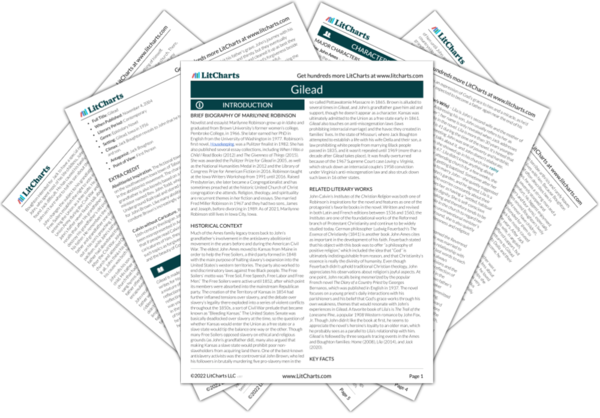The other kids saw John’s grandfather as a pitiful old eccentric, and to some extent, John felt the same way. But he did love and respect his grandfather, and his grandfather’s decision to leave Gilead felt like a message that in his grandfather’s eyes, the rest of the family wasn’t any better than the mocking, clueless locals.
